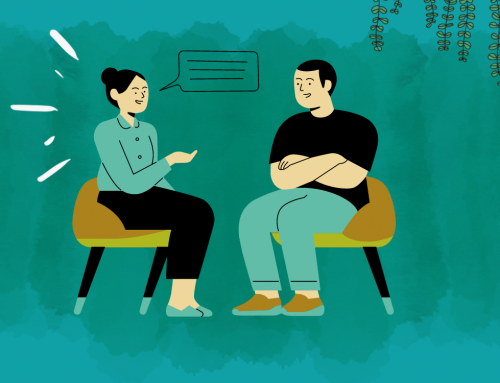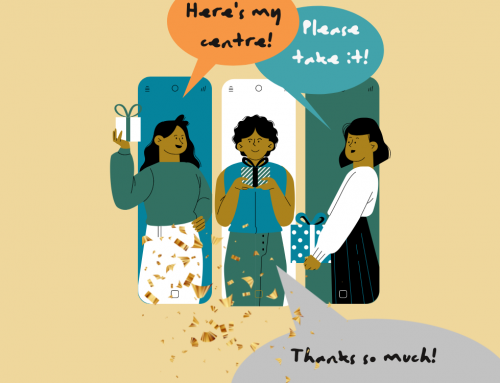Ok, so we were asked the question “Where do boundaries lie at work between openness/trusting others and protecting yourself from not being used?” I included a screenshot of the question 😉
Where is T.H.E. boundary? This is a good question, because there is no Wikipedia laying out the acceptable and unacceptable boundaries in the world.
Hence, our question to you: Where are YOUR boundaries?
Given that you used the word “mistrust” I am guessing that your boundaries have been crossed. And given that you ask a question about “How do others deal with this”, I am also guessing that you at least slightly confused now about how to react to your boundaries being crossed.
#1 Why confusion happens
Confusion usually happens, because the things we DO want to do are (secretly ;)) perceived by us as dangerous. Either because the act itself or its consequences are too scary. Let’s break this down:
– How would you LIKE to react if you knew that whatever you’d do, it’d be the right thing? Would you like to confront the other person? (Your message sounds a little like this ;))
– What fear keeps you from reacting the way you’d like to? Is that fear justified (i.e. is there a high chance that the thing we are fearful of will really happen)?
#2 Make a decision
So having sorted that: What would you rather tolerate?
(a) Having to face your fear and act like you truly want to?
(b) Postpone facing your fear, shut up for now and act like you truly want to NEXT TIME?
(c) Just forget about the whole thing and understand that this fear is very big?
As I do not know your individual situation, there is no obvious answer to that (although most people pick (a)). Sometimes there are good reasons why we should just “forget about it”. But sometimes there are good reasons to stand up for ourselves! So: What outcome would be ideal for you as a result of the conversation you might wanna be having? What do you want to communicate to the other person? What do you want to communicate to your own “self worth”?
#3 Some words of encouragement
You also asked for other people’s experiences. To me, you do not need others approval to go out there and stand up for your truth. Would it make you feel better if anyone answered here: “Hey, forget it! Just live on!” I guess not. Your boundary still would have been crossed 😉 You have the right to communicate your boundaries.
Some tough love: watch this video! THE BEST PHRASE IN IT: YOU GET WHAT YOU TOLERATE!!!!!!
#4 Consider the other party’s true motivation
You know how many people say 80% of all human behaviour is rooted in positive intentions? Even your friend probably didn’t wake up in the morning thinking: “Today is the day where I will finally abuse Beata’s trust!” We (mainly ;)) do harmful things, because we ourselves are ridden by fear.
If you want to communicate empathetically: Communicate that you experienced this behaviour as harmful, that your boundary has been crossed – and that you wouldn’t share this sensitive information again with the other person.
Yet, rather than trying to seek revenge or ask for gratification, it might be wise to just open the floor for the other person to explain how they perceived the situation
(Did they too think they did something wrong? What fear was riding them? How will they rebuild trust? OR did they not see it as a boundary? In that case what would have needed to happen so that the communication could have been clearer?).
Last point: When being confronted people often start to try greenwashing themselves “oohhh… I had NO CLUE that I crossed your boundary… oooooh”. Be courageous enough to communicate when you believe your friend is playing stupid. If it was clear, IT WAS CLEAR! And if it was SEMI-CLEAR your friend could have asked. Only if it was completely UNCLEAR, it’s perfectly ok to just proceed. Most people though – when being confronted – are actually sorry 😉 so my guess is that you don’t have much to be afraid of.
Was this helpful? Let me know and good luuuuuck!
Big hug!






